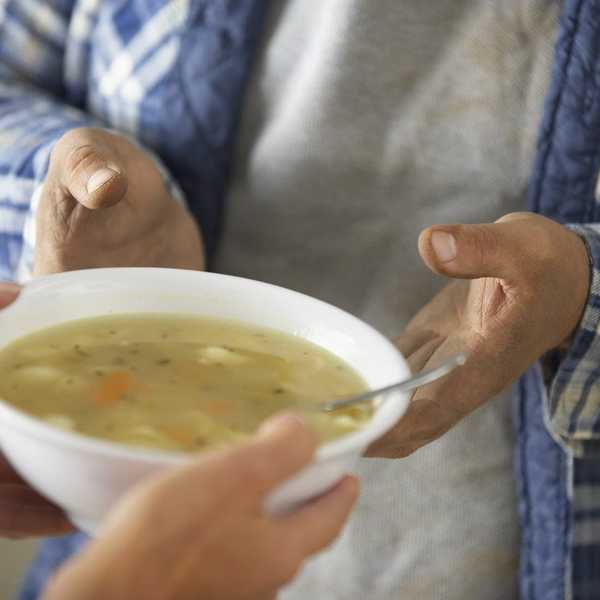Disclaimer: Before you continue reading this, I just want to say that I am not an expert on globalization, world aid, poverty, NGOs, natural disasters, or really anything. This is just my opinion based on what I have observed. This is a topic full of so much passion and compassion, but sometimes that is not enough - and I think it's just a lot more intricate than the average person (like me!) realizes...
I remember learning about the Haitian earthquake back in 2010 in high school. There were fundraisers almost everyday for a good two weeks - clubs selling cookies, shirts, tickets, jewelry - literally anything, to raise money. I of course wanted to help, and bought brownies, and a cute shirt that said "Haiti" on it and wore it proudly, as did many others. I think when terrible events happen, we are naturally moved to help. I think sometimes awful events, such as an earthquake, can shine light on larger problems that wouldn't have otherwise received attention.
Truthfully, I was never aware of poverty in Haiti before this earthquake. Fifteen-year old me evidently forgot there is poverty everywhere, and honestly, that's sort of the problem. We see poverty, and we often try to fix it with necessary material goods such as food, clothing, water, etc. This can help. But, what about trying to figure out why there is poverty, and doing something about it? Inherently, the desire to help is a good thing. However, in practice, we might be doing more harm than good.
How can this be? I buy a pair of TOMS shoes and someone who desperately needs them gets a pair for free. But what about the local cobbler who cannot compete with free? In the wake of Haiti's earthquake in 2010, countries all over the world were bringing in much needed supplies and food to meet an immediate need. But did you know that many countries governments are still dropping off food such as rice for free? So what about the local farmers who cannot compete with free?
I think there is a significant difference between initiatives that are aimed at long-lasting change, and initiatives that are aimed at helping with an immediate problem at hand. Lifesaving vaccines reaching areas that would not otherwise have them; children who cannot go to school have an opportunity to do so - these sorts of initiatives, and their subsequent organizations, often are aimed at making a long-term impact. Events such as natural disasters, are not planned events, and many places are not prepared to handle the aftermath, even the most affluent of areas. And that is okay.
What isn't okay is an almost inevitable pity that can come afterwards and not leave. We see destroyed cities in places such as Port-au-Prince in Haiti and Kathmandu in Nepal in the wake of an earthquake. We see images of children who lost parents, people starving who have little food, shelter and other basic necessities. It is a natural, human response to feel compassion towards those who are suffering. It is completely possible that those same people we are seeing in images were not well-off and prosperous before the disaster. But I can assure you that handout after handout is not going to make their lives any better in the long-run afterwards. In 2015, TIME ran an article five years after Haiti's earthquake, and had this to say:
“When you look at the history of humanitarian relief, there’s never been a situation when such a small country has been the target of such a massive influx of money and assistance in such a short span of time,” says Turine. “On paper, with that much money in a territory the size of Haiti, we should have witnessed miracles; there should have been results.”
But there wasn't. I watched a documentary recently called Poverty, Inc (it is available for streaming on Netflix) which does an excellent job addressing what happened in Haiti, and what continues to happen in other areas where well-intentioned NGOs, countries, and individuals that feel called to help leave behind a negative consequence. In a time where Corporate Social Responsibility is trendy, it is essential to understand how to effectively help.
I'm not here to bash any organization, person, or government who is trying to help in any way. I'm just here to bring your attention to an issue that often gets overlooked, and to look critically on the mechanics of what can happen when a call for immediate assistance turns into a cycle of unnecessary dependency.
When considering what organizations to support, where to give, and when to give, I urge you to consider the following.
1. Will my money be fostering local business and/or it's people?
Many incredible organizations are formed that support locals and providing them a way to make a living in a way that is fulfilling. Creating your own wealth is an extremely dignifying thing, and something everyone deserves, and I think an aspect of self-actualization many of us take for granted each day. Check out organizations such as Amazima Ministries, which has done a lot of incredible things in Uganda, such as form a women's bead group in a slum called Masese. When you buy one of their pieces of jewelry, the money goes directly back into the community and to the women who made them. The women are learning an artisanal skill, and making their own money to support their own families. There are so many great organizations such as theirs with similar missions to not only create dignity within the community, but support the local economy.
2. Is there knowledge I can provide?
"Give a man a fish and feed him for a day. Teach a man to fish and feed him for a lifetime." - Chinese Proverb
'nuff said.
3. Am I helping because it's trendy or because I care?
Remember Kony 2012? ALS Ice Bucket Challenge? The internet has made it so easy to spread awareness about important issues, which is awesome. However, it is important to also invest your time and effort into causes you truly care about, not just something that is trendy. Fleeting, trendy causes don't always get the traction they deserve. Though shoutout to the ALS Ice Bucket Challenge for kicking some serious butt (Okay, the ALS Ice Bucket challenge isn't really the best example here, as much of the money raised went to funding research, but it was extremely trendy, so you catch my drift, right?)
4. Investing vs. Donating
Sometimes there is immediate need for shoes, clothes, food, water, etc. It's important to understand the political climate, culture and economy of the places you are helping. Sometimes the best thing for those we want to help isn't a promise of a free pair of shoes at some point this year, but someone to teach them how to make their own. Wanting to help is not a bad thing - consider investing your time and money into something that brings skills and dignity to those we want to help. Investments (monetary and otherwise) are what will will bring true, long lasting change.
I don't want people to see a natural disaster in a developing country (or any country for that matter) and not want to help. I want people to see the people in those situations for who they truly are, and what they can become. Maybe that little boy in the streets without clothes and a place to sleep didn't have a great life before - but who's to say he can't build an awesome one for himself?
Because, who really benefits from a cycle of dependency?





















